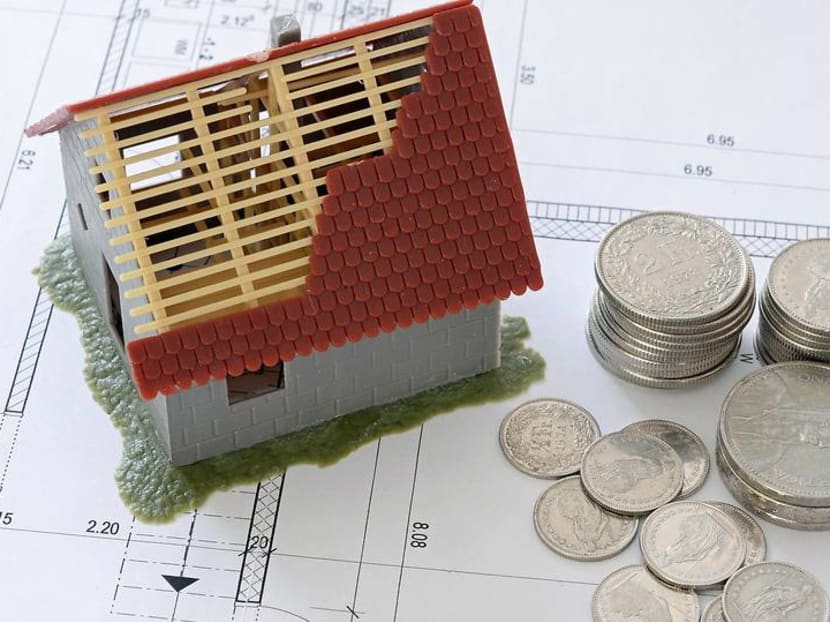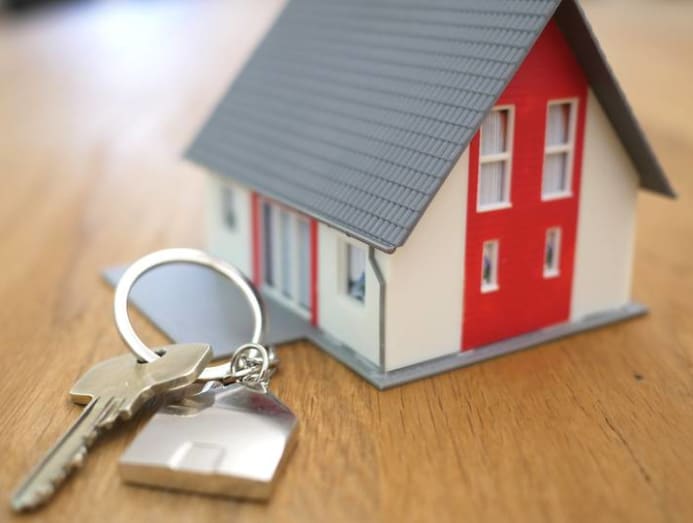Buying property? Why you should plan like a single-income household
It will serve as insurance, next to having the actual policies, against situations such as retrenchment, illness and business failure.

(Photo: Pixabay/annca)
When you assume your dual-income situation will last, you’re taking a huge risk. Say you and your spouse each earn S$4,000 a month, which is typical among Singaporeans right now. You team up to buy a house with your combined monthly income of S$8,000.
Now, under the Total Debt Servicing Ratio (TDSR), your loan is curbed at 60 per cent of this monthly income (inclusive of other loans like car and personal loans). Assuming you don’t have other debts, this means your monthly loan repayment can be as high as S$4,800. What can you buy with that?
READ: Selling your flat soon after MOP: Is it as smart a move as you think it is?
On paper, it may seem you can afford a condominium worth S$1.4 million. Here's why: The maximum loan for such a property (75 per cent of the price, straight from the developer) is S$1.05 million. On a 30-year-loan at 3.5 per cent per annum, this is a monthly repayment of close to S$4,800. So congratulations, you and your spouse qualify!

On top of that, the actual interest rate (at the time of writing) is lower than the rate used to calculate the TDSR*. It’s around 2 per cent right now, so your actual monthly repayments are just S$3,800 per month. With both of you paying, that’s about S$1,900 a month per person.
It all sounds pretty doable but what happens if your spouse becomes unable to work? We're not talking about death (as you would, hopefully, have life insurance or mortgage insurance that can cover that) but consider the impact of retrenchment, being forced into a lower-paying job, or being medically unable to work for a prolonged period. Given that you earn S$4,000 a month individually, how are you going to take over the monthly payment of S$3,800, and still have money left over for expenses such as groceries, maintenance fees and taxes?
READ: What are Singaporeans' biggest home renovation regrets?

You can see that the financial damage is devastating if you’re forced to sell within the first three years. Your losses can also be compounded if you’re forced to sell quickly (for example, your agent has no time to get you a better deal) and if you’ve already spent a significant amount on renovation and furnishing.
Consider the difference, if you buy as if you were a single-income family. You would buy a flat from the Housing & Development Board (HDB) instead of a condominium. A typical five-room flat (which is likely bigger than a S$1.4 million condo unit) might go for around S$550,000. At the HDB loan rate of 2.6 per cent*, your monthly loan repayment is just around S$2,245 for 25 years. This has a number of implications:
1. YOUR FAMILY HAS ONE MORE SAFETY NET
Not to deride insurance, but sometimes, cases fall through the cracks. Unemployment insurance only pays out up to 75 per cent of your income for a limited time (less if you opt for lower premiums). Disability income has certain requirements to meet, such as being unable to perform a certain number of Activities of Daily Living (ADL). And as horrifying as it sounds, there may not be a pay out if you’re not disabled enough. In such situations, the last resort could mean having the physically-abled spouse to start work. Even if the resulting income level is lower, it’s still a safety net in desperate situations.

2. THE SAVINGS COULD LET YOU AFFORD A CONDOMINIUM
Consider this: Your spouse saves or invests S$1,900 a month instead of putting the money into the same condominium with you. Over five years (the duration of your Minimum Occupancy Period), this would grow to over S$121,000 at just three per cent interest per annum.
Coupled with the sale proceeds from your HDB flat, which is likely to have appreciated, you could then upgrade to a property such as an Executive Condominium (EC) without having to walk a financial tightrope and wondering if you could end up selling at any time.
READ: A checklist to relationship-proof your property before buying one
3. YOU HAVE FEWER OPPORTUNITY COSTS
In the event you have children, or one of you wants to seize the opportunity to start your own business or take time off to be a full-time student, you have the opportunity to do so. But if you’re both cash strapped and struggling to pay the mortgage, none of these will be an option – and 25 to 30 years is a long time to be tied up this way.

4. YOU HAVE MORE HOLDING POWER
From the investment perspective, an affordable home means you have holding power. If you need to sell it at some point, it will be on your time and terms. You have the luxury of rejecting buyers till you get an offer you’re satisfied with.
But this doesn’t happen to buyers who are over-leveraged. If you can’t afford the mortgage in a few more months, you need to sell the property fast; even if the prospective buyer’s offer sounds more like it’s for a used Honda than your home.
So even if the both of you are working right now, consider buying as if one of you isn’t. It may mean you don’t get to live near Orchard Road or have a swimming pool for a while, but that kind of stress pales in comparison to 25 to 30 years of worrying over a mortgage.
* The medium-term interest rare of 3.5 per cent is used when calculating the TDSR, not the current rate of your loan package.
This story first appeared on 99.co.






